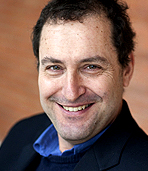SEN Journal: Online Exclusives would like to present the following interview with Dr. Daniele Conversi, the Ikerbasque Foundation Research Professor at the Universidad del País Vasco (Prosoparlam). He was a panel speaker at the 2012 ASEN Conference.
Vesselina Ratchev and Karen Seegobin interviewed Dr. Conversi at the 2012 ASEN Conference, held at the London School of Economics and Political Science on 27-29 March, 2012.
1. What are the main themes you’ve been working on this year?
I have been working on modernism in relation to nationalism, i.e. whether modernism can be considered as the dominant ideology of modernity and whether it is an ideology at all and how it reads with nationalism. Moreover, as my main project, I am looking at less popular concepts such as that of cultural homogenisation and how states have used cultural nationalism to impose common cultural values from the French Revolution until 1914 (or maybe later). I wouldn’t touch the inter-war period too much but might look a little bit into it, then ask how this cultural homogenisation interacts with globalisation in the neo-liberal world, of course using my own definition of globalisation.
2. What is the best book on nationalism that you’ve read in the past year?
The best new book I read is The Making of Modern Turkey: Nation and State in Eastern Anatolia, 1913-1950 by Ugur Ümit Üngör. It’s both of primary detail and it’s changed very much the perception of how nations are made.
3. What new directions are nationalism studies taking?
Nationalism studies are pretty static despite the possibilities. I would expect there to be more research into climate change and nationalism. There is nothing on this topic yet despite the fact that nationalism is a key legitimation in climate change.
4. What was the key piece of news from the last year that you found the most interesting?
For me living in the Basque country, the most important thing was the complete cessation of hostilities on the part of ETA, i.e. the peaceful resolution of the conflict which has not been talked about sufficiently over here. But that’s very local. There are too many things to mention on an international level, but I think most people would have referred to the Arab revolution. In this context, the spread of mass movements from the Arab world to the West is a very interesting thing. For the first time it seems to reverse the idea of Westernisation that we have.
SEN Journal: Online Exclusives would like to thank Dr. Conversi for taking the time to be interviewed. For more on the topics discussed, please see the following SEN articles, which can be found in the print edition:
Maskaliūnaitė, A. (2007), The Role of (ETA) Violence in the Construction of Nationalism in Spain and the Basque Country. Studies in Ethnicity and Nationalism, 7: 78–93.
Filippidou, A. (2007), Negotiating Tactics in Low Intensity Conflicts: The Cases of Northern Ireland, the Basque Country and Corsica. Studies in Ethnicity and Nationalism, 7: 94–108.
Rooney, N. (2007), Violent Nationalism in Catholic Communities: The Provisional IRA and ETA. Studies in Ethnicity and Nationalism, 7: 64–77.
Kancı, T. (2009), Reconfigurations in the Discourse of Nationalism and National Identity: Turkey at the Turn of the Twenty-first Century. Studies in Ethnicity and Nationalism, 9: 359–376.

